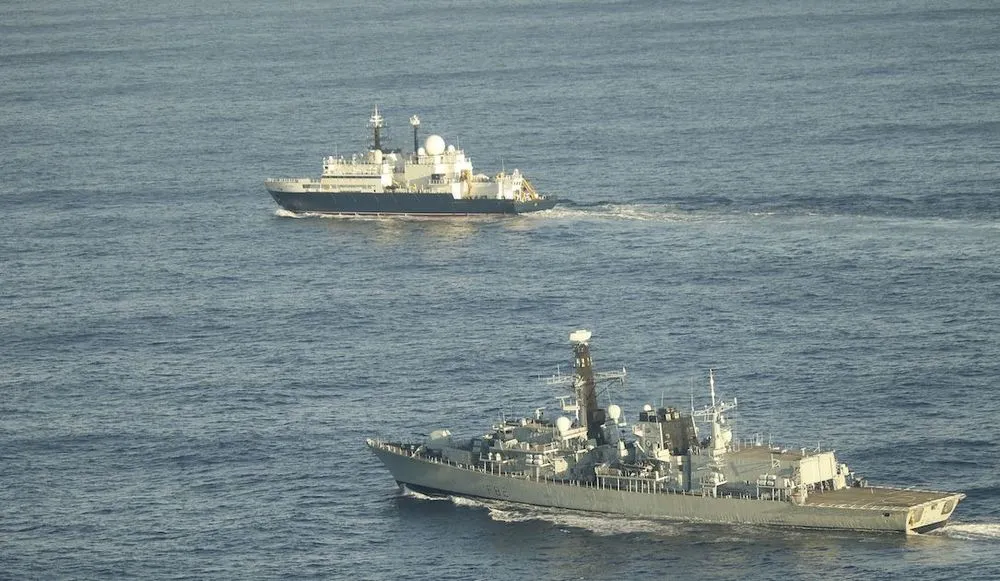UK to examine undersea cable vulnerability as Russian spy ship spotted in British waters
MPs and members of the House of Lords announced on Friday they would be holding an inquiry into the vulnerability of the United Kingdom’s undersea cables following a warning that a Russian spy ship had been identified mapping this infrastructure in British waters.
It follows an unusual disclosure by the Defence Secretary John Healey, who told Parliament this week he had changed operating procedures to authorize a Royal Navy attack submarine to surface close to the Russian ship and inform its crew that they were being watched while examining cables near the Cornish coast.
Healey said the incident with the Yantar occurred in November and informed Parliament that the Russian ship had returned to British waters this week. He described the surfacing maneuver as “strictly as a deterrent measure” and said the intention was “to make clear that we have been covertly monitoring its every move.”
The Joint Committee on the National Security Strategy (JCNSS) warned that “a number of cables in northern European waters – including those providing links between Norway, Sweden, Finland, Estonia and the Shetland Islands – have been severed over the past few years,” adding that “over 50 Russian vessels have been observed around areas of high cable density in the Baltic Sea.”
RFA Proteus monitors the Yantar in November 2024. Image: U.K. Ministry of Defence
Concerns have grown about disruptions to subsea infrastructure in the wake of an incident in the Baltic Sea on Christmas Day, when an alleged Russian spy ship dragged its anchor for almost 100 kilometers (62 miles) severing a number of cables.
Authorities in Finland have seized the ship, the Eagle S, after it was boarded by armed officers via helicopter, and said this week they suspect the damage was done intentionally. Those comments followed reports citing anonymous intelligence officials that the cable breakages were assessed to be accidents rather than acts of sabotage.
The new parliamentary inquiry is set to “explore the UK’s ability to defend our subsea infrastructure, and how this might change in the coming years as technology develops” as well as looking at how resilient the country would be “in the event of a major disruption,” said the JCNSS.
Matt Western, an MP and the committee’s chair, said that around 99% of Britain’s data depends on undersea cables and that this infrastructure “looks like an increasingly soft underbelly” as foreign states attempt to hold the country at risk.
“There is no need for panic — we have a good degree of resilience, and awareness of the challenge is growing. But we must be clear-eyed about the risks and consequences: an attack of this nature would hit us hard.”
Alexander Martin
is the UK Editor for Recorded Future News. He was previously a technology reporter for Sky News and a fellow at the European Cyber Conflict Research Initiative, now Virtual Routes. He can be reached securely using Signal on: AlexanderMartin.79



